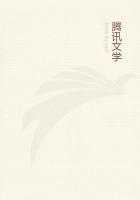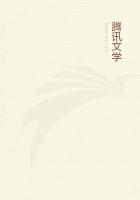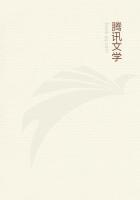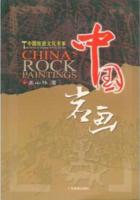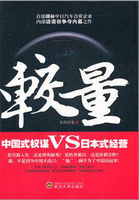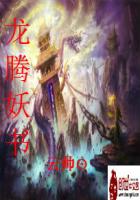So that if the capacity of knowing be the natural impression contended for, all the truths a man ever comes to know will, by this account, be every one of them innate; and this great point will amount to no more, but only to a very improper way of speaking; which, whilst it pretends to assert the contrary, says nothing different from those who deny innate principles. For nobody, I think, ever denied that the mind was capable of knowing several truths. The capacity, they say, is innate; the knowledge acquired. But then to what end such contest for certain innate maxims? If truths can be imprinted on the understanding without being perceived, I can see no difference there can be between any truths the mind is capable of knowing in respect of their original: they must all be innate or all adventitious: in vain shall a man go about to distinguish them. He therefore that talks of innate notions in the understanding, cannot (if he intend thereby any distinct sort of truths) mean such truths to be in the understanding as it never perceived, and is yet wholly ignorant of.
For if these words "to be in the understanding" have any propriety, they signify to be understood. So that to be in the understanding, and not to be understood; to be in the mind and never to be perceived, is all one as to say anything is and is not in the mind or understanding. If therefore these two propositions, "Whatsoever is, is," and "It is impossible for the same thing to be and not to be,"are by nature imprinted, children cannot be ignorant of them: infants, and all that have souls, must necessarily have them in their understandings, know the truth of them, and assent to it.
6. That men know them when they come to the use of reason, answered.
To avoid this, it is usually answered, that all men know and assent to them, when they come to the use of reason; and this is enough to prove them innate. I answer:
7. Doubtful expressions, that have scarce any signification, go for clear reasons to those who, being prepossessed, take not the pains to examine even what they themselves say. For, to apply this answer with any tolerable sense to our present purpose, it must signify one of these two things: either that as soon as men come to the use of reason these supposed native inscriptions come to be known and observed by them; or else, that the use and exercise of men's reason, assists them in the discovery of these principles, and certainly makes them known to them.
8. If reason discovered them, that would not prove them innate. If they mean, that by the use of reason men may discover these principles, and that this is sufficient to prove them innate; their way of arguing will stand thus, viz. that whatever truths reason can certainly discover to us, and make us firmly assent to, those are all naturally imprinted on the mind; since that universal assent, which is made the mark of them, amounts to no more but this,- that by the use of reason we are capable to come to a certain knowledge of and assent to them; and, by this means, there will be no difference between the maxims of the mathematicians, and theorems they deduce from them: all must be equally allowed innate; they being all discoveries made by the use of reason, and truths that a rational creature may certainty come to know, if he apply his thoughts rightly that way.
9. It is false that reason discovers them. But how can these men think the use of reason necessary to discover principles that are supposed innate, when reason (if we may believe them) is nothing else but the faculty of deducing unknown truths from principles or propositions that are already known? That certainly can never be thought innate which we have need of reason to discover; unless, as I have said, we will have all the certain truths that reason ever teaches us, to be innate. We may as well think the use of reason necessary to make our eyes discover visible objects, as that there should be need of reason, or the exercise thereof, to make the understanding see what is originally engraven on it, and cannot be in the understanding before it be perceived by it. So that to make reason discover those truths thus imprinted, is to say, that the use of reason discovers to a man what he knew before: and if men have those innate impressed truths originally, and before the use of reason, and yet are always ignorant of them till they come to the use of reason, it is in effect to say, that men know and know them not at the same time.
10. No use made of reasoning in the discovery of these two maxims.
It will here perhaps be said that mathematical demonstrations, and other truths that are not innate, are not assented to as soon as proposed, wherein they are distinguished from these maxims and other innate truths. I shall have occasion to speak of assent upon the first proposing, more particularly by and by. I shall here only, and that very readily, allow, that these maxims and mathematical demonstrations are in this different: that the one have need of reason, using of proofs, to make them out and to gain our assent; but the other, as soon as understood, are, without any the least reasoning, embraced and assented to. But I withal beg leave to observe, that it lays open the weakness of this subterfuge, which requires the use of reason for the discovery of these general truths: since it must be confessed that in their discovery there is no use made of reasoning at all. And I think those who give this answer will not be forward to affirm that the knowledge of this maxim, "That it is impossible for the same thing to be and not to be," is a deduction of our reason. For this would be to destroy that bounty of nature they seem so fond of, whilst they make the knowledge of those principles to depend on the labour of our thoughts. For all reasoning is search, and casting about, and requires pains and application. And how can it with any tolerable sense be supposed, that what was imprinted by nature, as the foundation and guide of our reason, should need the use of reason to discover it?

